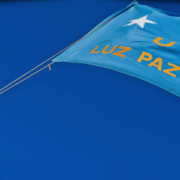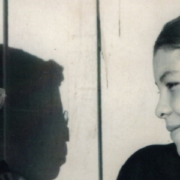The Regulation of the Religious Use of the tea, Hoasca: Reflections at the G20 Interfaith Forum
| September 19th, 2024
André Fagundes*
From August 19th through the 22nd, 2024, the G20 Interfaith Forum (IF20) was held in Brasília-DF, a global platform dedicated to promoting dialogue between governments, civil society, and religious organizations. The goal of the meeting was to develop proposals that would contribute to the improvement of public policies, the promotion of peace, sustainability, and respect for religious diversity worldwide.
Recognizing the fundamental role that the religious communities play in providing health and education services, assisting those in need, preventing conflicts, and building peace, the Forum has established itself as an indispensable space for the exchange of ideas and the search for collective solutions. Under the theme “Leave No One Behind: The Well-Being of the Planet and its People”, the event brought together world leaders, ministers of state, academics, and religious leaders.
The Beneficent Spiritist Center União do Vegetal is a religion based on the teachings of King Solomon and Jesus, which were brought to us by its founder, José Gabriel da Costa, known as Mestre Gabriel. The communion of our sacrament, which we call Hoasca or Vegetal, is strictly religious and complies with the laws of the country. As such, we recognize the importance of scientific and legal work in the regulation of the use of the tea.
As a researcher specializing in religious freedom, I was invited to participate in this event, where I had the opportunity to present models of this regulation.
Prepared by boiling the bark of the mariri vine (Banisteriopsis caapi) and the leaves of the chacrona tree (Psychotria viridis), this sacred tea induces an expanded state of consciousness and has been traditionally used by Indigenous peoples of the Amazon basin for religious and healing purposes since ancient times. The importance of Hoasca Tea in Latin American countries is so significant that, in 2008, Peru declared the traditional knowledge and use of Hoasca Tea, practiced by native Amazonian communities, as Cultural Heritage of the Nation.
As presented at the IF-20, Brazil has become a global example by developing a pioneering regulation for the religious use of Hoasca Tea. This regulation was crafted by a Multidisciplinary Working Group (MWG), which involved researchers from various fields, such as anthropology, pharmacology, biochemistry, social sciences, psychiatry, and law, as well as guests invited by the National Council on Drug Policies (CONAD) and representatives from the religious groups that commune with the tea, Hoasca, during their rituals.
The result was a safe and efficient model. As reported by Assistant General Mestre Edson Lodi Campos Soares, then Vice President of the MWG: “The deliberations were reached by consensus, respecting religious traditions and ensuring the safety and well- being of practitioners, while also preserving public order and health, which are fundamental responsibilities overseen by the Nation.”
This broad and careful debate culminated in the issuance of Resolution No. 1, dated January 25, 2010, by CONAD, which consolidated the practices that ensure the appropriate and responsible religious use of Hoasca tea in the country. This marked the crowning achievement of a legitimization process that began nearly forty years earlier with the creation of the first Working Group of CONAD (then known as the Federal Narcotics Council – CONFEN).
Resolution No. 1/2010 of CONAD not only established clear and rigorous guidelines, but also became a reference for other countries seeking to balance respect for religious expressions with the need to ensure public health and safety. It stands out for its ability to integrate multiple fields of knowledge and perspectives.
During the presentation, the decision of the U.S. Supreme Court was also highlighted. After a thorough investigation, the Court unanimously recognized the right of the União do Vegetal to administer its religious sacrament through the use of Hoasca Tea in its Spiritist Sessions within U.S. territory. This historic decision resulted in the formalization of an agreement between the U.S. government and the UDV, establishing a regulatory model that, over nearly 20 years, has proven to be highly effective. Under this agreement, the importation of Vegetal is overseen by the Drug Enforcement Administration (DEA), with no reports of health damage or diversion for recreational or commercial uses. The precision and efficiency of this individual agreement model were so notable that Canada followed suit, allowing international shipments and religious rituals to take place in an orderly and controlled manner.
However, the exercise of the right to religious freedom by members of the União do Vegetal in some European countries has still been a challenge. The UDV, which is based on Christian-reincarnationist principles, has about 23,000 members from over 60 nationalities. Over the years, it has carried out its religious work in 11 countries but has faced discrimination in some European nations, being unjustly prevented from registering as a religious organization and even from partaking with its sacrament – the Hoasca Tea—in violation of the European Convention on Human Rights and the International Covenant on Civil and Political Rights. The use of Hoasca Tea is essential for conducting the religious ritual, as it aids in the mental concentration of members, allowing for a connection with the Sacred and facilitating the understanding of the spiritual teachings of the União do Vegetal.
During the presentation, it was emphasized that although there are third parties who use the tea in a recreational and inappropriate manner, it is important to separate the wheat from the chaff and not confuse improper uses with the sacramental and safe use promoted by the União do Vegetal. Penalizing a serious religious institution, with a history of more than six decades of respecting the law and conducting its religious rituals in a sincere and responsible manner, led by properly trained individuals, constitutes a severe affront to religious freedom.
In conclusion, it was highlighted that the Brazilian regulation and the agreement models adopted by the U.S. and Canada are successful examples of how the Nation can effectively ensure both religious freedom and public health and safety at the same time.

**André Fagundes is the Vice-Director of the International Area of the Legal Department of the General Directorate, a member of the Council Body of the Samaúma Center, 3rd Region, and a professor in the postgraduate program in Religious Law.
 English
English Português
Português Español
Español



